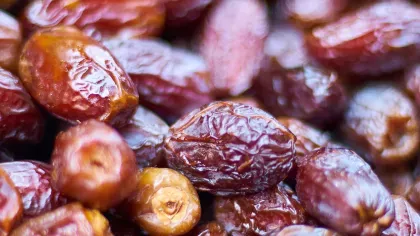
5 July 2021
Postdoctoral Researcher

Conservation genomics, plant domestication, medicinal plants, archaeogenomics
As a postdoc in biodiversity genomics in the Antonelli Lab group, my research involves genomic resource generation and analysis, in the context of conservation biology.
My current primary focus are the medicinally valuable, alkaloid-producing South American plants: Cinchona spp (the fever tree), a renowned source of malaria-combatting quinolines) and coca (Erythroxylum coca and E. novograntense, plants of great cultural and medicinal relevance to Indigenous Peoples).
My keen interest in understanding evolution of plants in a human context is reflected in my work on the genomics of plant domestication; alongside South American medicinal plants, I continue to pursue collaborative research on edible crop plants of the Americas and Eurasia.
This involves genomic analysis of samples from archaeological contexts (ancient DNA), herbaria and museum collections. We aim to elucidate the adaptation of these major and minor crops to an anthropogenic environment, their routes of geographical dispersal, their adaptive potential and relationships with crop wild relatives.
Plant domestication is a fascinating system for deepening our understanding of evolutionary phenomena and characterising the biodiversity of crop species is highly relevant to food security.
Furthermore, as a researcher under Kew’s Accelerated Taxonomy priority, I am involved in expanding Kew’s Plant and Fungal Trees of Life (PAFTOL) and in disentangling relationships between species.
I have a particular interest in the family Orchidaceae and am a collaborator on phylogenomic and conservation genomic work concerning Neotropical orchids led by Dr. Oscar Pérez-Escobar.
I am assisting on a research project funded by the Swiss Orchid Foundation, concerning orchid diversity in the Dominican Republic, Hispaniola, an island which is characterised by high endemism but that is simultaneously experiencing multiple threats to local ecosystems.
Simon, M. F., Mendoza Flores, J. M., Liu, H. L., et al. (2022)
New Phytologist 233: 534-545.
Przelomska, N.A.S., Armstrong, C.G., & Kistler, L. (2020)
Frontiers in Ecology and Evolution 8: 74.
Hunt, H.V., Oliveira, H.R., Lister, D.L., Clarke, A.C. & Przelomska, N.A. (2018)
McDonald Institute for Archaeological Research
Kistler, L., Maezumi, S.Y., De Souza, J.G., Przelomska, N.A., et al. (2018)
Science 362:1309-13.
Lightfoot, E., Przelomska, N., Craven, M., et al. (2016).
Rapid Communications in Mass Spectrometry 30:1475-87.
Jackson, H.A., Bunbury, N., Przelomska, N. & Groombridge, J.J. (2016).
Ibis 158:380-94.